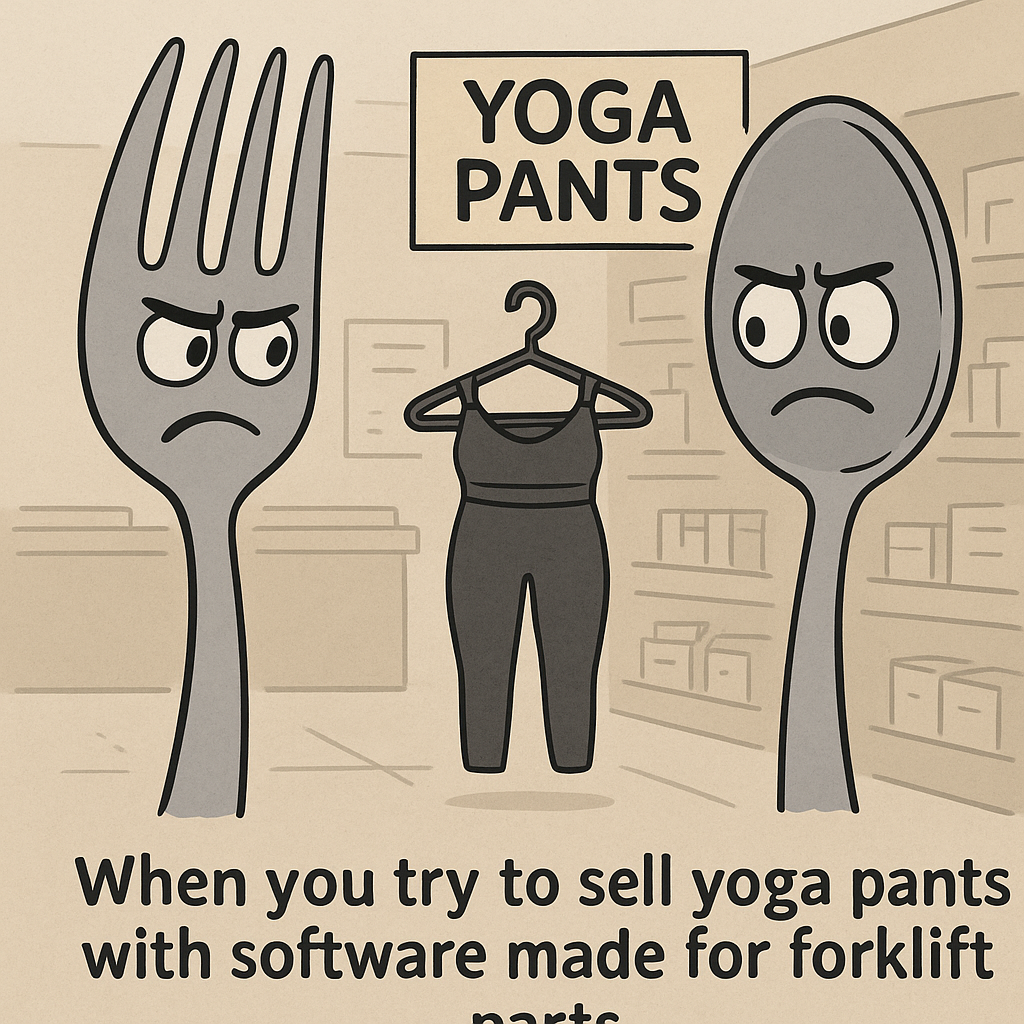Can You Use a Fork as a Spoon? Why B2B Platforms Struggle in Online Retail
Let’s clear something up.
When we talk about online retail or B2C, we’re referring to businesses selling directly to consumers. Think clothing brands, candle shops, or anyone selling products online to individuals—not wholesale buyers.
Now, some folks in the eCommerce world might roll their eyes at the idea of using a B2B platform for B2C retail. But here’s the thing—it’s a question that comes up more than you’d expect. On the surface, it makes sense: if a platform lets you build a website, upload products, set prices, and add images, why not use it for online retail?
Well, it turns out, B2C platforms are expected to do a whole lot more than just display products. Here's why B2B platforms aren't always the best fit.
1. Retail Shoppers Expect a Show
In B2C, the website isn't just a place to buy—it’s part of the brand experience. Great B2C platforms are built to engage shoppers, showcase products beautifully, and make browsing fun. You’re not just moving a customer through a catalog. You’re creating a vibe.
B2B buyers often know what they need and just want to place an order quickly. B2C buyers, on the other hand, want to be wowed before they even click “Add to Cart.”
That level of visual storytelling and interactivity? It’s usually not a core feature in B2B platforms.
2. Retail Happens Everywhere
Retail brands don’t just sell on their website anymore. They sell through TikTok, Instagram, Amazon, livestreams, and probably whatever social app Gen Alpha invents next.
A good B2C platform integrates with these channels seamlessly. Discovery and purchase often happen outside the website. A platform that can’t centralize these touchpoints risks losing revenue and relevance.
3. Promotions Are Wild in B2C
Sure, B2B platforms can do discounts. But B2C is a circus of flash sales, influencer codes, loyalty rewards, and pop-up coupons.
These fast-changing promotional tactics are essential for DTC brands and evolve constantly. A B2C platform needs to support these features out of the box—not rely on workarounds or custom development.
4. Can It Handle a Product Drop Meltdown?
B2C traffic is unpredictable. One viral video and suddenly you’ve got 50,000 people trying to buy the same candle at once.
While B2B platforms might handle moderate spikes, the scale and intensity of retail events like Black Friday or influencer-driven launches demand serious infrastructure. B2C platforms are designed for chaos.
Final Take
Yes, you can technically use a B2B platform for a B2C store. But just because something works doesn’t mean it works well. A spork is technically a spoon and a fork, but nobody’s eating soup with it on purpose.
B2B and B2C platforms have different strengths because they serve different buyers. Choose the one that’s designed for your audience.

